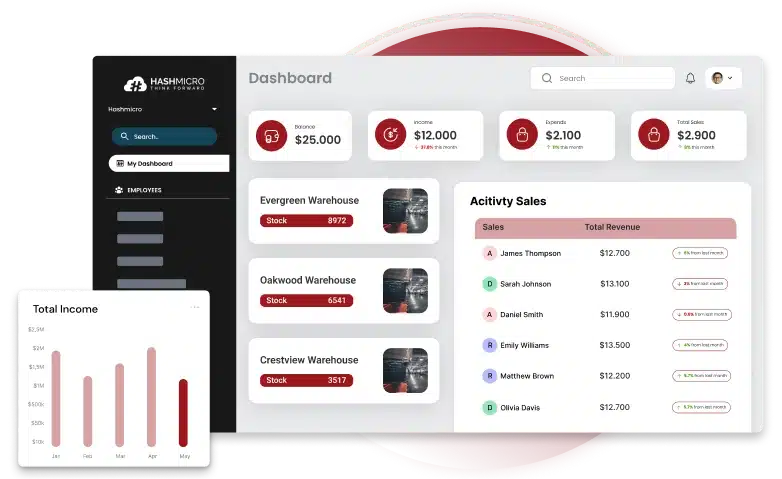Project time management is essential to success, yet it’s often a major challenge for Project Managers (PMs). Without proper time management, deadlines are missed, quality suffers, and projects veer off course.
Imagine juggling multiple tasks: distributing workloads, communicating with stakeholders, and aligning goals with clients, all under tight deadlines. It’s easy for things to fall through the cracks, and when that happens, it can have a ripple effect across the entire project.
The key to staying on track? Mastering project time management. When a PM takes charge of time effectively, they set the project up for success. By learning to manage time well, you can make a real impact on every phase of your project.
Key Takeaways
|
Table of Contents
What is Project Time Management?
Project time management is the process of breaking down tasks, creating a timeline, and setting up controls to keep the project on track. This ongoing process runs through all project phases: starting, planning, scheduling, executing, and monitoring to ensure that everything finishes on time.
Time management is a key part of project management and a top priority for project managers. Good time management involves planning, scheduling, tracking, and overseeing all project tasks. It also helps organize and review the project’s progress.
When people mention project time management, they’re often also talking about the tools and methods, like project management ERP software, that support it.
Why is Project Time Management Important?
Projects can feel overwhelming. There’s always plenty to do but often limited time or budget to work with. Mistakes aren’t an option, as they can be both costly and time-consuming.
Stakeholders expect reliability, and while you can’t guarantee flawless execution, you can certainly focus on managing time well. With some effort, you can apply project management strategies that not only boost your efficiency but also make work more enjoyable.
The best approach for a project manager is to consider the needs of both the project team and the organization and then start with the strategies that are most likely to make a real difference.
Main Processes in Project Time Management
Effective project time management involves several key processes to keep tasks and deadlines organized. By following each step, Project Managers can ensure smooth progress from start to finish.
Tara na at simulan na natin! Here’s a breakdown of the main processes involved in managing project timelines effectively.
1. Creating a project plan
Planning is foundational to project management. A project plan serves as a roadmap, describing how the project will be executed, monitored, controlled, and ultimately closed. This plan clarifies the project’s objectives, scope, and deliverables, becoming an essential reference for the team, organization, and stakeholders.
2. Project schedule management process
A project schedule goes beyond a basic timeline; it specifies the timeline, resources, and tasks needed to complete each phase. Every team member needs to access this schedule to understand the project’s critical path.
When using effective scheduling tools, creating and maintaining this schedule becomes a smoother process, aligning closely with time management goals.
3. Define the project activities
Identifying and organizing tasks is critical to keeping the project on track. This can be as straightforward as listing tasks or, for complex projects, visualizing them in a work breakdown structure (WBS). This structure helps break down large goals into manageable pieces, providing clarity on what needs to be done.
4. Determine dependencies and sequence activities
Once you’ve defined activities, it’s crucial to establish task dependencies to set the correct order. For example, certain tasks must be completed before others can begin, as in construction, where a roof can’t be built before the frame is in place.
Next, sequencing tasks without assigning specific timelines ensure they flow efficiently and are set up for the most logical order of completion.
5. Estimate duration and resources
Estimating time and resources for each task can often be done by reviewing similar past projects or using standard estimating methods. For instance, if one person handles multiple tasks, these tasks need staggered timelines.
6. Control the schedule
Once a schedule is established, it must be monitored and updated regularly. Tracking actual progress against planned milestones allows you to identify any delays and make adjustments quickly. This ensures that the project remains on track and that any deviations are addressed promptly.
Tips for the Most Effective Project Time Management
To manage project time effectively, it helps to focus on practical, day-to-day strategies. Simple habits can make a big difference in staying on schedule and reducing stress. Here are some tips to help you improve time management for project success.
1. Create personal task lists
Besides the project’s main task list, create a daily or short-term task list for yourself, and encourage your team to do the same. Keeping task lists focused on a limited time frame, like a single day, can help maintain productivity and focus.
2. Apply the 80/20 rule
This time management approach means that in a 10-hour workday, about 2 hours are highly productive, while the remaining 8 are more routine. Recognize your most productive hours and tackle critical or urgent tasks during that time, leaving less pressing work for the remaining hours.
3. Minimize distractions
Staying focused is essential for effective time management. Dedicate specific periods to uninterrupted work on key tasks. You can even block this time in your calendar, so your team knows you’re busy. Tools like Google project management software that syncs with calendars are useful for maintaining focus.
4. Delegate effectively
As a project manager, your role isn’t to do every task but to ensure that tasks are completed well. Delegate tasks to team members who have the capacity and skills to handle them.
Software that stores team members’ skills and availability can help you assign tasks more efficiently, enabling you to see who’s best suited and available.
5. Ensure meetings are productive
Meetings are essential for alignment, but they can also consume a lot of time. Avoid using meetings to discuss individual updates. Instead, specific topics and time limits should be set so meetings focus on broader issues or problem-solving.
6. Identify bottlenecks in the workflow
If your team struggles to stay on schedule, analyze the workflow for potential bottlenecks. Often, these occur when certain team members are handling more tasks than they can reasonably manage. One solution is to redistribute tasks among team members with more capacity, balancing the workload to keep the project on track.
Simplify Your Schedule with HashMicro Project Management Software
HashMicro Project Management Software provides a powerful, cloud-based app designed to help teams seamlessly plan, track, and collaborate on projects. Trusted by businesses across Southeast Asia, HashMicro’s Project Management System is the go-to solution for various enterprises.
This versatile tool brings collaboration to the forefront with features like timeline management, job cost tracking, and in-depth reporting. And since it’s mobile-friendly, your team can stay connected and manage projects on the go.
With a sleek, modern design and an intuitive layout, the software makes it easy to dive in and start managing projects in minutes. There is no steep learning curve, just effective project control at your fingertips.
- Project Management: Efficiently allocate resources and analyze tasks by project, team, timeline, and budget for effective project oversight.
- Expense & Billing Tracking: Optimize project costs by managing budgets and invoices, ensuring financial resources are fully utilized to complete the project as intended.
- Scheduling & Task Management: Avoid overloaded task assignments that can reduce productivity and keep track of team performance in task completion.
- Timeline Management: Oversee project timelines in list or calendar format to ensure all projects stay on schedule and meet deadlines.
- Job Cost Estimation: Project cost estimation, margin control, and automatic budget calculation make cost management seamless.
- Comprehensive Reporting: Generate detailed reports on project progress, budget use, and performance metrics with visual options like S-curves and Gantt charts.
Conclusion
Project time management is essential for completing tasks efficiently and meeting deadlines. Effective time management leads to better project outcomes and greater satisfaction for all stakeholders involved.
HashMicro’s software is the ultimate tool to keep your team organized and focused. From resource allocation to timeline control, it covers everything you need to manage projects successfully. Accessible on mobile, HashMicro’s solution makes managing projects effortless, walang sabit!
With its user-friendly design and powerful features, HashMicro’s Project Management System brings clarity and control. Stay on top of deadlines, optimize budgets, and track progress in real-time—all in one place.
Handa ka na bang palakasin ang potensyal ng iyong proyekto? Try the free demo now!

FAQ About Project Time Management
-
What are the common challenges in project time management?
Common challenges include inaccurate time estimates, scope changes, resource constraints, and unforeseen delays. These issues can disrupt schedules and affect project outcomes.
-
How does time management impact project quality?
Effective time management ensures that tasks are completed within set deadlines, allowing sufficient time for quality assurance and reducing the likelihood of rushed work that may compromise quality.
-
How can project managers handle time management in remote teams?
Project managers can use collaboration tools, set clear expectations, establish regular check-ins, and promote transparent communication to effectively manage time in remote teams.
-
What tools can assist in project time management?
Tools such as Gantt charts, critical path method (CPM), and project management software help in planning, scheduling, and tracking project timelines, enhancing overall time management.


























